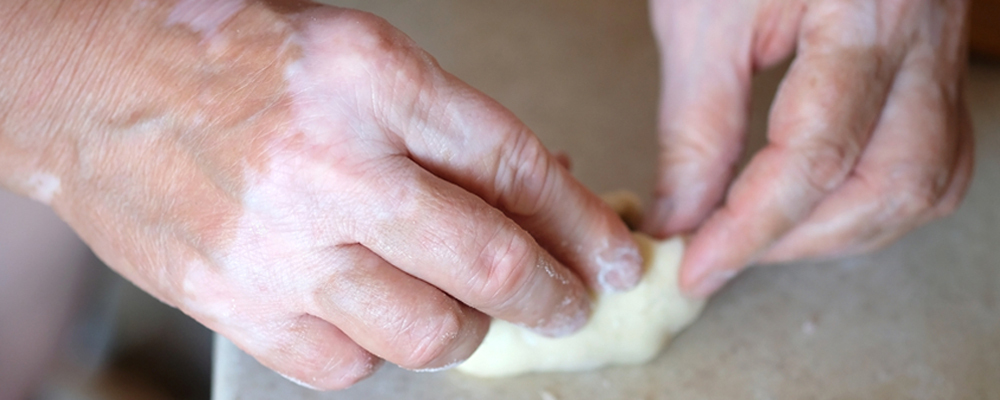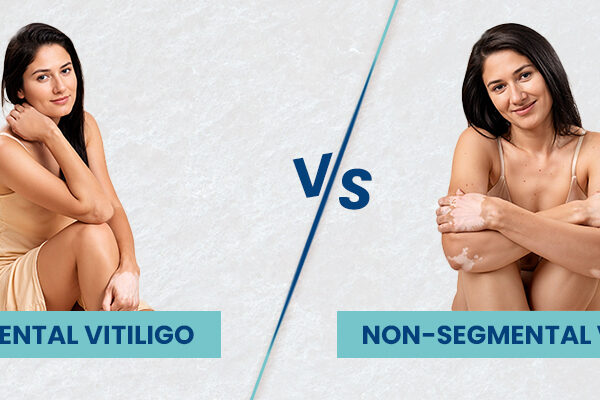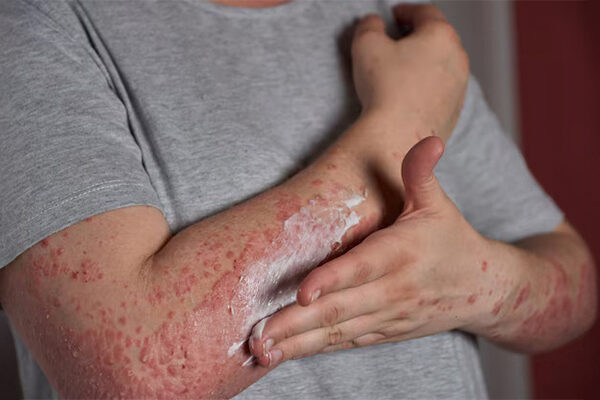Updated on February 20, 2024
Introduction
Vitiligo is a condition marked by the uneven loss of skin pigmentation. There can be various aspects that may potentially contribute to the exacerbation of symptoms. Therefore, considering those triggers can help improve the condition. While living a life with vitiligo, you may be wondering about whether your symptoms show improvement when abstaining from gluten-containing foods.
Approximately 25% of individuals with vitiligo are known to have one or more autoimmune diseases, among which celiac disease is also included. The presence of gluten sensitivity in your regular life is indicative of celiac disease. Nevertheless, to know whether cutting gluten out of your diet would benefit you or not, it is important to comprehend a few key considerations.
However, to dive deeper into the in-depth details of the relationship between celiac disease and vitiligo, continue reading the article.
Also read: Is Vitiligo Hereditary or Genetic?
What is Autoimmune Disease?
Autoimmune diseases involve the immune system producing antibodies that attack healthy tissues. In these unusual conditions, the immune system, therefore, incorrectly identifies healthy tissues as foreign or harmful, leading to an attack on these cells. Autoimmune diseases have the potential to impact various body parts, including the skin, bowels, thyroid, pancreas, and more. There are many other autoimmune diseases other than celiac disease which may disrupt the normal functionality of the immune system. The inflammation caused by autoimmune and autoinflammatory disease contributes to a range of diseases including psoriasis, which results in the rapid and abnormal growth of skin cells. Psoriasis is further classified into many subtypes such as eyelid psoriasis, and psoriasis vulgaris.
However, the exact cause of the autoimmune disease remains unknown, yet numerous specific inherited gene variations are linked to various autoimmune diseases.
Also read: Is Eczema An Autoimmune Disease or Something Else?
Association Between Celiac Disease and Vitiligo
Individuals with celiac disease experience sensitivity to gluten. Gluten, known as a mixture of proteins, is found in grains and wheat, such as rye and barley. It is commonly found in various food products like baked goods, pasta, and bread. The consumption of gluten has also been linked to leaky gut syndrome, characterized by increased permeability of the intestinal lining. Due to this, the body may be exposed to substances, such as bacteria.
Besides, existing research supports the connection between celiac disease and vitiligo, focusing on the importance of considering celiac disease in individuals with vitiligo due to potentially overlooked non-specific intestinal symptoms. Studies have also reported that in individuals with celiac disease, early vitiligo diagnosis could be beneficial.
However, the existence of a direct link between gluten and vitiligo remains uncertain due to the limited research on this association and it has become a subject of controversy. While some studies did not find a significant relationship between these two immunological diseases; on the other hand, there have been reports of improvement in conditions such as psoriasis, and vitiligo, in individuals with celiac disease, following a gluten-free diet.
Summary
There is no such evidence of a direct link between celiac disease and vitiligo, but incorporating a gluten-free diet may improve the symptoms in those afflicted with the condition. Multiple research organizations are investigating potential treatment options for vitiligo which may help alleviate the symptoms and can potentially help to regain confidence and restore health as a whole. Moreover, continuous research is being conducted to investigate the correlation between the two.





